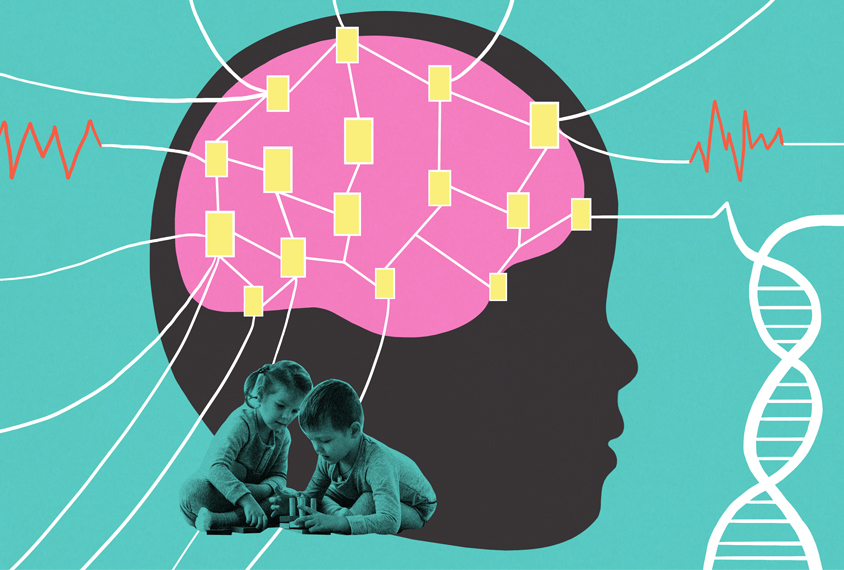Emily Jones is professor of translational neurodevelopment at the Centre for Brain and Cognitive Development at Birkbeck, University of London in the United Kingdom. Her research efforts center on the neurodevelopmental pathways that lead to autism. She is involved with a number of early-intervention studies for infants with siblings with autism and attention deficit hyperactivity disorder.

Emily Jones
Professor
Birkbeck, University of London
From this contributor
Connecting autism-linked genetic variation to infant social behavior
Integrating genetic analyses into studies of babies’ brain development could help us understand how autism-related genes contribute to autism traits.

Connecting autism-linked genetic variation to infant social behavior
Explore more from The Transmitter
Neuro’s ark: Spying on the secret sensory world of ticks
Carola Städele, a self-proclaimed “tick magnet,” studies the arachnids’ sensory neurobiology—in other words, how these tiny parasites zero in on their next meal.

Neuro’s ark: Spying on the secret sensory world of ticks
Carola Städele, a self-proclaimed “tick magnet,” studies the arachnids’ sensory neurobiology—in other words, how these tiny parasites zero in on their next meal.
Autism in old age, and more
Here is a roundup of autism-related news and research spotted around the web for the week of 2 March.

Autism in old age, and more
Here is a roundup of autism-related news and research spotted around the web for the week of 2 March.
Lack of reviewers threatens robustness of neuroscience literature
Simple math suggests that small groups of scientists can significantly bias peer review.

Lack of reviewers threatens robustness of neuroscience literature
Simple math suggests that small groups of scientists can significantly bias peer review.